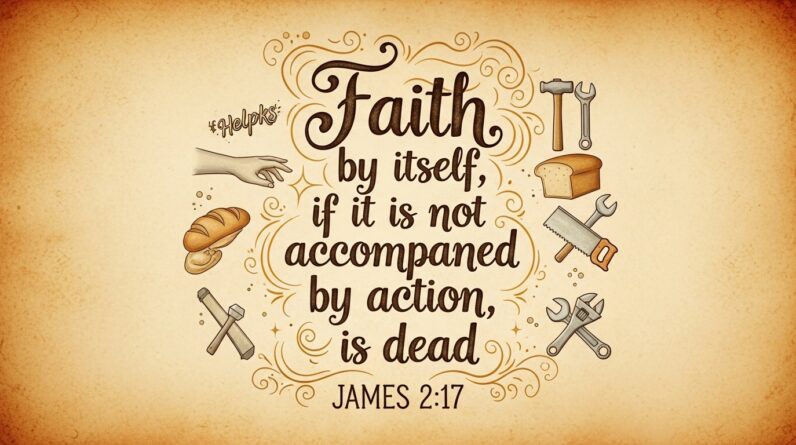God’s Design For Healthy Boundaries In Relationships
You were created to live in relationship—with God and with others—and God designed boundaries to protect those relationships. Boundaries are not unloving walls; they are godly guardrails that help you honor God, love others, and preserve your emotional and spiritual health. When you learn to live with wise, compassionate limits, you free yourself to serve faithfully without getting drained, confused, or pulled into unhealthy patterns. In this article, you’ll explore how Scripture supports healthy limits, how to put them into practice, and how to communicate them in a way that reflects Christ’s love. You’ll also see real biblical examples and practical steps that make it clear: practicing Biblical boundaries in relationships is part of following God faithfully.
Why boundaries are biblical—and not selfish
It’s easy to think boundaries are selfish, but Scripture shows otherwise: boundaries are necessary for stewardship of the heart, ministry, and family. You’re commanded to guard your heart and mind so you can remain faithful to God and others. Consider the wisdom of Proverbs: “Proverbs 4:23”—“Above all else, guard your heart, for everything you do flows from it.” When you protect your heart with healthy boundaries, you prevent spiritual compromise and relational harm. That stewardship allows you to love others more effectively over the long haul.
What biblical boundaries look like in practice
Biblical boundaries in relationships are about clarity, responsibility, and compassion. They’re not ultimatums born of anger; they’re decisions made out of love for yourself and for the other person. Boundaries help you say “yes” to what honors God and “no” to what harms you or others. They guide how you give and receive help, how you forgive, and how you hold people accountable. When you set limits, you model responsibility and invite others to grow in holiness and maturity with you.
Christ set boundaries—so can you
Jesus modeled boundary-setting without sin. He regularly withdrew to pray, prioritized rest, and communicated truth in ways that protected his mission and his people. For instance, after intense ministry moments, Jesus went away by himself to pray: “Mark 1:35.” That example shows you that stepping away isn’t failure; it’s spiritual discipline. He also invited the weary to find rest in him, demonstrating that healthy limits and dependence on God go hand in hand: “Matthew 11:28-30.” Your boundaries should reflect dependence on Christ, not isolation from him.
Clear communication is a boundary of love
One way you protect relationships is by communicating clearly. Jesus taught straightforward speech—“let your ‘Yes’ be ‘Yes,’ and your ‘No,’ ‘No’”—and that matters in setting expectations and preventing misunderstandings: “Matthew 5:37.” When you speak plainly and lovingly, you remove the manipulation and confusion that often lead to resentment. Clear communication is a boundary that honors truth and respects the other person’s ability to respond.
Boundary setting is loving accountability
Church life and community require boundaries so sin won’t spread unchecked and so restoration can happen. Jesus and the apostles outlined processes for dealing with persistent sin in ways that protect both the victim and the community and that aim for restoration: “Matthew 18:15-17.” When you follow biblical processes for accountability, you aren’t being punitive—you are protecting the flock and seeking the offender’s repentance. That kind of structure is a Godly boundary that facilitates healing and truth.
Carry each other’s burdens—but know the limits
The Bible calls you to bear one another’s burdens, but it also teaches personal responsibility. Paul encouraged mutual care while recognizing that some burdens are not yours to carry forever: “Galatians 6:2” and “Galatians 6:5.” You should help and support others, but you are not responsible for solving every problem or carrying someone’s lifelong dysfunction. Learning that boundary is an act of maturity that protects you from burnout and preserves dignity for the one you’re trying to help.
Biblical boundaries protect the pursuit of peace
You’re called to live at peace with others whenever possible, but peace doesn’t always mean no boundaries. Sometimes the most peaceful action is to establish a limit. Romans instructs you to “as far as it depends on you, live at peace with everyone”: “Romans 12:18.” That verse puts responsibility on you to pursue peace, but it doesn’t require you to accept abuse or compromise your conscience. You can pursue peace by setting clear, fair boundaries that reflect love and justice.
Boundaries and forgiveness—how they work together
Forgiveness is essential in your Christian walk, but forgiveness doesn’t always mean immediate removal of consequences or removal of a boundary. Colossians instructs you to bear with one another and forgive: “Colossians 3:13.” Forgiveness frees you from bitterness, but boundaries can remain to protect you and to encourage change. When you forgive, you release the debtor from the debt of bitterness; when you set a boundary, you invite responsibility and growth. Both flow from grace.

Practical steps to set healthy boundaries
Setting boundaries doesn’t have to be complicated. Start with prayer—ask God for wisdom and courage. Then identify what’s draining you, where you feel resentful or anxious, and which relationships lack mutual respect. Define specific actions you’ll stop, start, or change. Practice saying short, honest phrases: “I can’t do that right now,” “I need time to think,” or “I’ll help within these limits.” Keep it simple and consistent. Your consistency will teach others how to treat you and will model what it looks like to live by spiritual principles.
Sample boundary phrases you can use
When you’re practicing Biblical boundaries in relationships, you need words that are both firm and kind. Use simple, direct phrases instead of long explanations or defenses. For example: “I can’t take that on right now,” “I won’t be part of that conversation,” “I’ll participate, but only under these conditions.” You’ll find that concise statements reduce arguments and set predictable expectations. This kind of clarity demonstrates love because it prevents hurt feelings and miscommunication.
Boundaries in marriage: protecting intimacy and unity
Marriage is a picture of Christ and the church, so healthy boundaries matter deeply in your marriage. You create safety and trust when you set limits around outside friendships, information-sharing, and patterns that erode intimacy. Boundaries prevent emotional affairs, reduce misunderstanding, and protect a couple’s shared spiritual life. You should talk openly with your spouse about what each of you needs to feel safe and honored. When you mutually agree to acts of protection, you strengthen trust. God’s design for marriage includes loving limits that help you be free to love well.
Parenting: loving limits that shape children
Children thrive with clear, consistent boundaries because limits teach responsibility and security. God used boundaries in Israel’s life to shape a people; similarly, you set boundaries in your family to teach values and consequences. Discipline done in love, not anger, forms character. Make sure your rules are age-appropriate and consistently enforced, and explain them in ways children can understand. When you model healthy boundaries—respecting your own time for rest, saying “no” when needed, apologizing when wrong—you teach your children to live a life of self-control that honors God.
Friendship and social boundaries: how to guard your soul
Friendships are a source of joy and accountability, but not every friendship is equally safe. Healthy friendships allow you to be honest, to grow, and to be encouraged, while unhealthy friendships drain, manipulate, or promote sin. You’ll need to set boundaries about time, topics, and influence. If a friend continually disrespects your core convictions or encourages destructive behavior, it’s appropriate to step back or set clearer limits. When you do, you’re not punishing them; you’re protecting your own soul so you can be a faithful friend in ways that honor God.
Boundaries with toxic people: protecting without hating
You may encounter people who are abusive, manipulative, or persistently harmful. Scripture doesn’t tell you to love abuse; it teaches you to protect the vulnerable and to pursue justice. Setting firm boundaries—up to and including cutting off contact when necessary—is sometimes the healthiest, most loving option. Nehemiah provides a model of courage and discernment as he protected his people and refused to be distracted from the work God gave him: “Nehemiah 6:3.” Protecting yourself doesn’t mean you stop loving the person; it means you set limits so you can live and serve faithfully.
Conflict resolution: boundaries that lead to reconciliation
Conflict is inevitable, but the way you handle it can foster growth or cause destruction. Use the biblical process of private correction before escalating to a public confrontation: start one-on-one, seek reconciliation, and only take further steps if the person refuses to change: “Matthew 18:15-17.” That process is a protective boundary for the church and a pathway to restoration. It balances grace and truth, giving the offender opportunities to repent while protecting the community.
Saying “no” without guilt—anchoring your yes in Godly priorities
Saying “no” is a spiritual discipline when your “yes” is anchored to what God calls you to. Jesus’ invitation to take his yoke shows you the right kind of “yes”—one that rests in his direction, not in people-pleasing: “Matthew 11:28-30.” When you turn down requests that undermine your calling, you’re actually saying “yes” to the mission God has given you. Declining is an act of faith and stewardship, not a moral failing.
Guarding your heart while serving others
You can serve generously while guarding your heart. Paul’s guidance on mutual support in Galatians reminds you to help when possible but also to accept that each person carries their own responsibility: “Galatians 6:2”, “Galatians 6:5.” When service leads to excessive depletion or resentment, it’s time to reassess and set limits. Healthy service is sustainable service; unhealthy sacrifice often leads to burnout and diminished witness. Boundaries ensure that your acts of love remain faithful and fruitful.
Spiritual boundaries: protecting your walk with God
Your relationship with God is the foundation for any boundary you set. Without daily prayer, Scripture, and Sabbath rhythms, you’ll likely set boundaries out of fear or pride rather than grace. Ephesians shows the power of honest, loving speech in building up the body: “Ephesians 4:15.” Spiritual disciplines keep your motives pure and your heart soft. Before you communicate a boundary, ask God to search you—are you acting out of love, or out of self-protection? Let Scripture guide your motives and methods.
When to seek help: counseling and accountability
You don’t have to handle difficult boundary issues alone. Seek godly counsel when you face patterns of abuse, addiction, or deep relational dysfunction. Pastors, counselors, and trusted Christian friends can help you establish safe, biblically informed boundaries. Don’t confuse dependence with humility; sometimes dependence on wise counsel is the humblest and most effective step you can take. Surround yourself with people who will speak truth in love and hold you accountable to live by the gospel.
Common misconceptions about boundaries
People often confuse boundaries with selfishness, un-Christian hardness, or lack of forgiveness. The truth is that boundaries are tools of love and stewardship. You don’t have to live with perpetual discomfort to prove your faith. God calls you to both compassion and wisdom. You can be compassionate without being a doormat. Boundaries sharpen your witness because they allow you to live a measured, faithful life that others can trust.

A pastoral prayer for courage to set healthy boundaries
Ask God to give you the courage to set boundaries that honor him and bless others. Pray for clarity to see where limits are needed and grace to carry them out without pride. Remember, Jesus himself practiced restful limits and compassionate truth-telling; follow his example. When you act in obedience to God, your boundaries will reflect his love and wisdom. That’s the heart of practicing Biblical boundaries in relationships—loving others well by honoring God first.
Moving forward: small steps you can take today
Start with one practical step: identify one relationship that leaves you drained or resentful. Pray about it. Decide on one boundary you can set this week—maybe a time limit, a change in topic, or a refusal of an unhealthy request. Communicate it simply and kindly, then follow through. Small steps build momentum, and consistent boundaries become the soil in which healthy relationships grow. As you practice, you’ll find freedom and renewed capacity to love.
Final encouragement: boundaries as a pathway to freedom
Healthy boundaries are part of God’s design for you to flourish in relationships. They protect your heart, honor your calling, and allow you to love generously without losing yourself. When you anchor your boundaries in Scripture and in prayer, you’ll find they aren’t walls but pathways to freedom. You’ll be able to say “yes” with joy and “no” without guilt, all while reflecting Christ’s love to the people God has placed around you. Remember Proverbs’ counsel to guard your heart; do so with grace and courage as you live out Biblical boundaries in relationships.
Explore More
For further reading and encouragement, check out these posts:
👉 7 Bible Verses About Faith in Hard Times
👉 Job’s Faith: What We Can Learn From His Trials
👉 How To Trust God When Everything Falls Apart
👉 Why God Allows Suffering – A Biblical Perspective
👉 Faith Over Fear: How To Stand Strong In Uncertain Seasons
👉 How To Encourage Someone Struggling With Their Faith
👉 5 Prayers for Strength When You’re Feeling Weak

📘 Jesus and the Woman Caught in Adultery – Grace and Mercy Over Judgement
A powerful retelling of John 8:1-11. This book brings to life the depth of forgiveness, mercy, and God’s unwavering love.
👉 Check it now on Amazon
As a ClickBank Affiliate, I earn from qualifying purchases.
Acknowledgment: All Bible verses referenced in this article were accessed via Bible Gateway (or Bible Hub).
“Want to explore more? Check out our latest post on Why Jesus? and discover the life-changing truth of the Gospel!”








